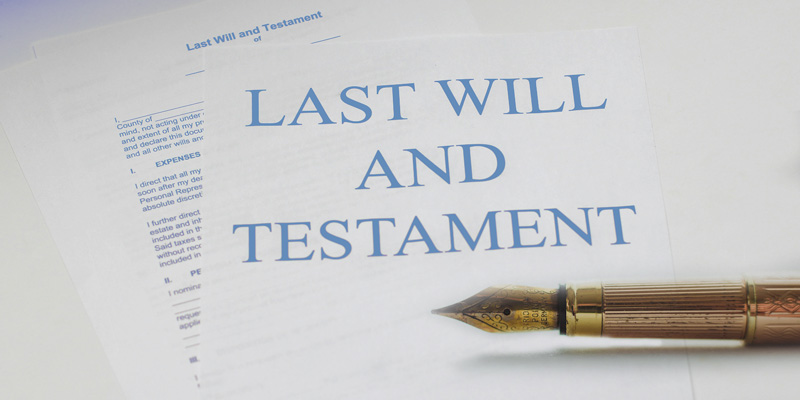
Why everyone should make a Will
The only certainties in life are death and taxes, goes the old adage. Or in the more poetic words of Forrest Gump: “Life is like a box of chocolates. You never know what you’re going to get.” Given that few of us would argue with this Gump family wisdom, it’s rather surprising that around half of the adults in the UK don’t have a Will. We all know we’re going to die one day and, uncomfortable as it is to think about, we never can tell when that’s going to be.
What happens if you die without leaving a Will?
If you die without leaving a Will, legally you have died intestate. This means that the law decides who inherits your estate (property, money, pension, etc.). For some people this may be straight forward. For a lot more people this is where things get complicated. Under the rules of intestacy only married and civil partners can inherit your estate. The belief that couples who live together – often called common law partners – can inherit each others estates is wrong. Legally, common law partnerships do not exist. So even if you lived together as a couple for decades, your surviving spouse would not be entitled to anything under the intestacy rules. Similarly, around 1 in 3 UK families are now estimated to be blended families. Without a Will any step-children would not be entitled to an inheritance unless you had formally adopted them.
Can I make a Will myself?
You’ll find DIY Will kits in the High Street newsagent and may wonder why you should pay someone else to draw up your Will. Here are a few things to consider.
The intestacy rules still apply if your Will is judged to be invalid. This could be for as simple a reason as it was not witnessed correctly (two independent witnesses must sign your Will). It could also be challenged in the Courts if someone believes you were unduly influenced in how you shared out your estate. Whilst this may sound like the plot of a TV drama, it’s surprising how many ex-spouses can feel aggrieved that they are due receive nothing in a Will. Having an experienced solicitor write your Will can protect your current spouse and your children from the anguish and expense of legal challenges. A solicitor will also explain the different types of gift that you can leave and the implications of Inheritance Tax for both your estate (which reduces the value of your assets) and for the people inheriting from you. Many people think they are not wealthy enough to be troubled by Inheritance Tax. The reality is that even an average family home and life insurance policy will take the value of your estate well above the £325,000 threshold for paying tax. Add in a pension along with even modest savings and any tax bill soon mounts up. You can even specify in your Will who should pay any Inheritance Tax.
Is it very complicated to make a Will?
Due to the Covid pandemic there were changes made to statutes, the laws that govern us, certain changes were made to enable individuals to make Wills throughout the pandemic. A 30 minutes Zoom call can easily be made to your legal representative and you will not even have to leave your home to do this!!! “Simple’s” as the meercats say.
Gifting your home to your children
For most people their most valuable material asset is their home. There are some common misconceptions around gifting your home to your children as a way to avoid Inheritance Tax. If you gift your home to your children and live for more than 7 years then the property will no longer be considered part of your estate. However, if you continue to live in the property and don’t pay a market rate for rent, and pay your share of the bills, then the property would still be classed as part of your estate even after 7 years.
Acting upon your wishes
Finally, it’s worth mentioning an often overlooked consideration: who will be your executor. The executor is a person named in your Will who is responsible for carrying out your wishes. You may name your solicitor as the executor or you may name a family member or friend. Indeed you can name more than one executor. Some people believe that an executor cannot be a beneficiary of your Will. This is not true. However, your executor should not act as a witness to your Will as this would invalidate their inheritance.
None of us like to think about death and dying but making a Will can protect your loved ones against the stress and expense of navigating the legal process.
To find out more about Wills call us today at B&L Solicitors on 020 8288 3522.
Legal disclaimer
The articles published on the website are intended to be for general information purposes only. These articles do not constitute legal advice, nor should they be used as a complete or authoritative statement of the law in England and Wales and should not be treated as such. Whilst every effort is made to ensure that the information is correct, no warranty, either express or implied, is given as to their accuracy, and no liability is accepted for any errors or omissions. Before acting on any of the information contained in any of these articles, expert advice should be sought.
Keep me in the Legal Loop!
Sign up with your email address to receive news and updates.
We respect your privacy.

